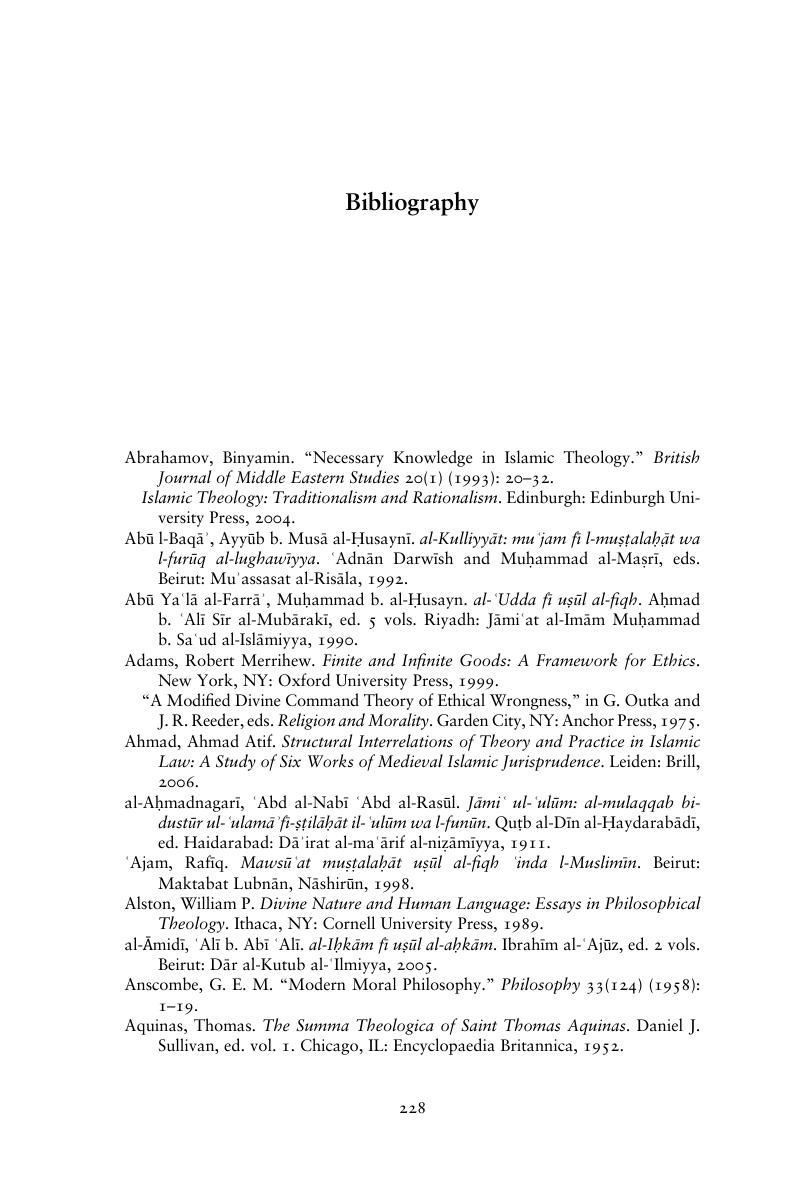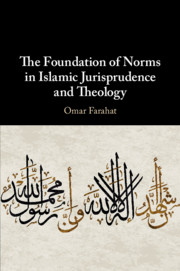Book contents
- The Foundation of Norms in Islamic Jurisprudence and Theology
- The Foundation of Norms in Islamic Jurisprudence and Theology
- Copyright page
- Dedication
- Contents
- Acknowledgments
- Introduction
- Part I Epistemological and Metaphysical Foundations
- Part II The Construction of Norms in Islamic Jurisprudence
- Conclusion
- Bibliography
- Index
- References
Bibliography
Published online by Cambridge University Press: 25 January 2019
- The Foundation of Norms in Islamic Jurisprudence and Theology
- The Foundation of Norms in Islamic Jurisprudence and Theology
- Copyright page
- Dedication
- Contents
- Acknowledgments
- Introduction
- Part I Epistemological and Metaphysical Foundations
- Part II The Construction of Norms in Islamic Jurisprudence
- Conclusion
- Bibliography
- Index
- References
Summary

- Type
- Chapter
- Information
- The Foundation of Norms in Islamic Jurisprudence and Theology , pp. 228 - 237Publisher: Cambridge University PressPrint publication year: 2019



